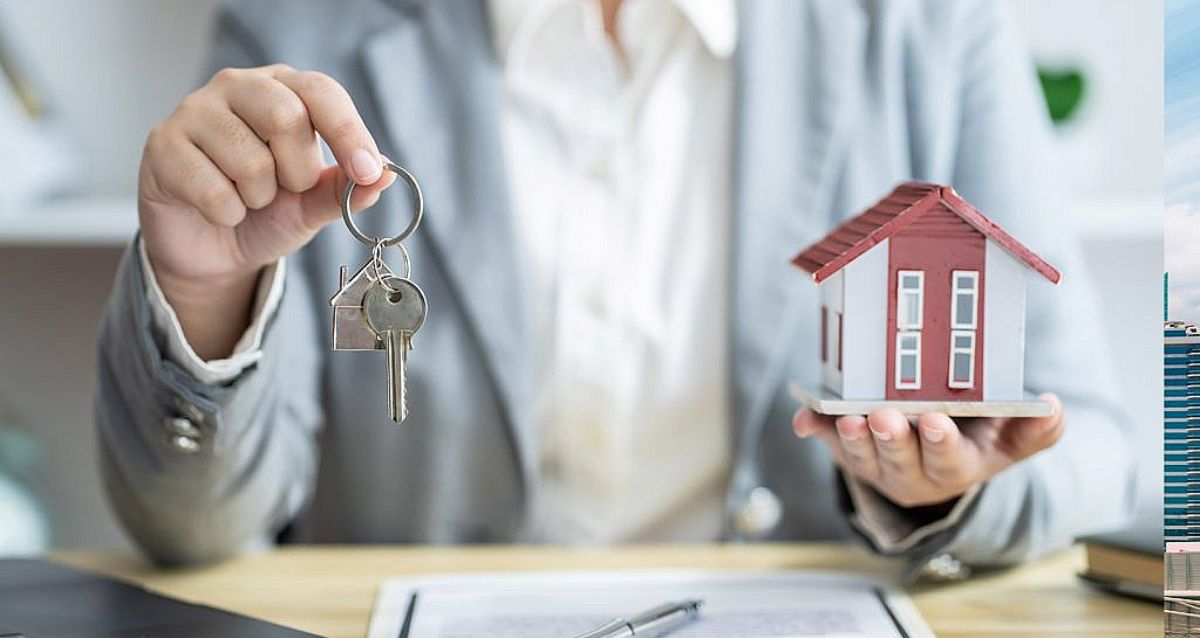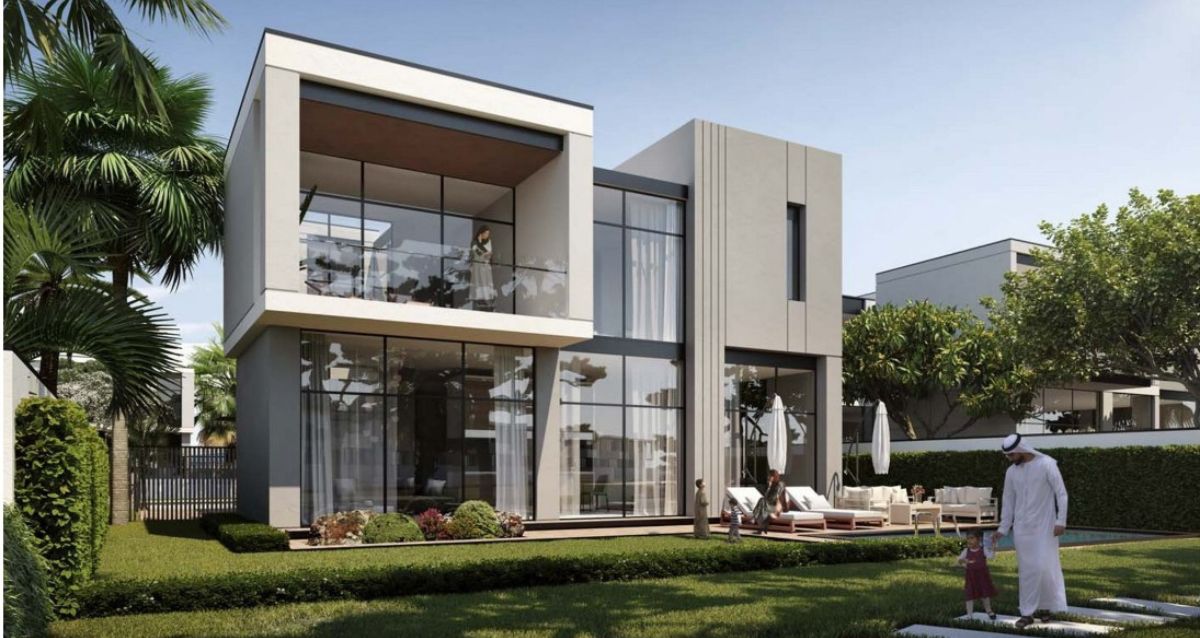Thinking About Buying an Off-Plan Property in Dubai? Here’s What You Need to Know

Thinking About Buying an Off-Plan Property in Dubai?
Dubai’s property market has been on a remarkable ride. Towers rise seemingly overnight, villa communities sprawl across what was once empty desert, and entire neighborhoods go from blueprints to bustling in just a few years. It’s no wonder people around the world look at this city and think: I want in.
For many, the easiest way to get a piece of it is through off-plan property buying a home before it’s even finished. The appeal is obvious. Prices are usually lower than ready properties, payment plans are more forgiving, and if the market is kind, your investment might be worth more by the time the keys are in your hand.
Sounds great, right? Well, yes and no. Off-plan has its perks, but it also has risks, some obvious, others that don’t show up until you’re months or years into the process. A lot of buyers jump in after seeing slick brochures without really thinking about what could go wrong. And when things don’t go as planned, the frustration can be real.
Here’s a closer look at the biggest risks tied to off-plan property finance in Dubai and how to prepare for them.
1. Construction Delays
If you’ve spoken to anyone who has bought off-plan, chances are you’ve heard this story: the handover date kept shifting. Delays are probably the single most common risk in Dubai’s off-plan market.
- Projects get delayed for a whole mix of reasons:
- Developers run into material or labor shortages.
- Design changes midway through construction.
- Government permits or approvals take longer than expected.
- Broader issues like global supply chain disruptions.
Even weather can play a role, unusual storms a few years ago stalled some sites for weeks.
For buyers, delays aren’t just inconvenient. If you were planning to rent out the property, that’s lost income. If you want to move in, you may be stuck paying rent somewhere else. Some people shrug this off as “part of the process,” but others find it stressful when dates keep sliding.
What helps? Research. Developers like Emaar and Nakheel usually have better track records on timely delivery than some of the smaller, newer firms. That doesn’t mean delays won’t happen, but your odds are better with established names. Also, check the Dubai REST app. It's an official tool where you can see whether a project is properly registered and how far along it is. Staying on top of updates is key.
2. Market Fluctuations
Here’s the truth: even if your apartment is finished exactly on time, the market may not be on your side. Dubai’s real estate sector is famously dynamic. Prices can rise fast, but they can also dip just as quickly.
What drives these swings? A mix of global and local factors:
- Interest rate hikes (like the ones we saw in 2023–24).
- New supply hitting the market all at once.
- Changes in buyer sentiment sometimes psychological shifts move the market as much as fundamentals.
Imagine buying in 2019, expecting a healthy resale profit by 2022. Then COVID hit, interest rates shifted, and short-term demand softened. The market bounced back, yes, but the timing caught plenty of people off guard.
This is why investors need to keep one eye on the bigger picture. Don’t just trust what a sales agent tells you about “guaranteed appreciation.” Look at historical data. Ask yourself: is there an oversupply of similar properties in this neighborhood?
And, if possible, avoid putting all your money in one place. A little diversification across locations or even property types can save you from being overexposed when conditions change.
3. Developer Bankruptcy
Not a fun topic, but a real one. Developers going bankrupt isn’t as common now as it was during the 2008 crash, but the risk hasn’t disappeared entirely.
If a developer’s finances collapse, construction halts. Buyers are left with unfinished homes and money tied up. In the past, this led to years of court battles for some unlucky investors.
Dubai’s regulators have tightened the rules since then. Projects now need to be registered with the Dubai Land Department (DLD), and buyers’ payments are usually placed in RERA-regulated escrow accounts. Developers only get access to funds once specific milestones are reached. This system has saved a lot of people from bigger losses.
Still, it’s not foolproof. Always check that your payments are going into escrow, not directly into a developer’s pocket. And do your homework to look at how the developer handled previous projects. Did they deliver? Did they face financial trouble? With a bit of digging, you’ll spot red flags early.
4. The Finished Product May Differ
This is one of those risks that seems small until you’re holding the keys. The glossy brochure shows Italian marble, premium fittings, and generous layouts. But when handover day arrives, the tiles aren’t quite what you expected, or the kitchen appliances are more budget than luxury.
In some cases, the differences are cosmetic. In others, they can hurt the property’s rental or resale appeal.
The best defense is detail. Get everything in writing. Ask the developer to spell out exactly what finishes and fixtures will be included. If they promise “premium materials,” what does that actually mean? A clear contract leaves less room for unpleasant surprises.
5. Personal and Financial Risks
This one doesn’t get enough attention. Off-plan finance ties you into a payment plan that usually runs for years. That’s fine if your income stays steady, but life happens. Jobs change, businesses face downturns, family emergencies pop up. Suddenly, keeping up with installments may feel harder than expected.
Missed payments often trigger penalties. In some cases, buyers have even lost what they already paid when they couldn’t continue. Add project delays into the mix and things get more complicated; you might be paying for a property that isn’t even ready yet.
The solution? Plan conservatively. Don’t stretch your budget to the breaking point. Keep a buffer fund for emergencies. Even having three to six months’ worth of installments saved separately can ease a lot of stress if something unexpected hits.
6. Legal and Contractual Issues
Finally, don’t underestimate the fine print. Off-plan contracts can be long, technical, and tilted in favor of the developer. Some clauses give them room to change layouts or materials, others impose strict penalties on buyers who miss deadlines.
A lot of buyers skip over this, trusting the sales pitch. That’s risky. Having a lawyer or an experienced real estate consultant review the contract can make a huge difference. Yes, it’s an added cost upfront, but it’s much cheaper than being locked into unfavorable terms for years.
Also, always double-check that the project is officially approved by the DLD and falls under RERA oversight. That extra layer of regulation isn’t just paperwork, it's protection.
How to Keep the Risks Manageable
Off-plan property finance isn’t about avoiding risk entirely, it's about managing it. Here’s a quick rundown of what actually helps in practice:
- Stick with reputable developers. Names like Emaar, Meraas, and Nakheel generally carry more security than untested newcomers.
- Confirm DLD registration and escrow. If money isn’t going into an escrow account, walk away.
- Follow the market. Watch interest rates, new launches, and broader economic trends.
- Don’t overcommit. Choose a payment plan you can realistically maintain, even if things change.
- Get professional help. A lawyer’s review of your contract is worth it.
- Stay engaged. Monitor construction progress, ask questions, and keep communication open.
Final Thoughts
Buying off-plan in Dubai can absolutely be rewarding. The entry prices are lower, payment plans are easier, and in many cases, buyers do see healthy returns once projects complete. But it’s not a guaranteed win.
Delays, market ups and downs, financial strain, and legal complications are all part of the picture. The difference between a success story and a regret often comes down to how prepared you are.
Do your homework. Pick the right developer. Protect your payments. And plan for the unexpected.
At the end of the day, off-plan property is less about quick wins and more about strategic patience. If you go in with your eyes open, it can still be one of the smartest ways to invest in Dubai’s fast-moving real estate scene.
FAQs:
1. What is an off-plan property, and why is it popular in Dubai?
An off-plan property is a property purchased before construction is complete, often based on designs and plans. In Dubai, it’s popular because prices are generally lower than ready properties, payment plans are flexible, and there’s potential for capital appreciation by the time the project is completed.
2. What are the main risks of buying off-plan in Dubai?
Key risks include construction delays, market fluctuations affecting property value, developer financial issues or bankruptcy, differences between promised and delivered finishes, personal financial strain from extended payment plans, and legal or contractual complications. Buyers should be aware of these and plan accordingly.
3. How can I protect my investment when buying off-plan?
Ensure the project is registered with the Dubai Land Department (DLD), and your payments go into a RERA-regulated escrow account. Research the developer’s track record, engage a qualified lawyer to review contracts, follow market trends, and maintain a financial buffer for unforeseen circumstances.
4. Are there reputable developers to prioritize for off-plan investments?
Yes. Established developers such as Emaar, Nakheel, and Meraas have stronger delivery records and financial stability compared to newer, untested firms. While no investment is risk-free, choosing reputable developers can significantly reduce potential issues.
5. What should I consider before committing to a payment plan?
Review your personal financial situation carefully. Ensure that installments are manageable even if unexpected expenses arise or the project experiences delays. Avoid overcommitting, and keep an emergency fund to cover at least 3–6 months of payments. A realistic financial plan is key to mitigating stress during the construction period.
To learn more about Thinking About Buying an Off-Plan Property in Dubai?, Book a free consultation with one of the Signature Habitat team advisors.
This article was published on 10-09-2025. The information provided in the article is based on the policies and rules applicable at the time of writing it. Talk to one of our consultants for any recent updates or changes.

